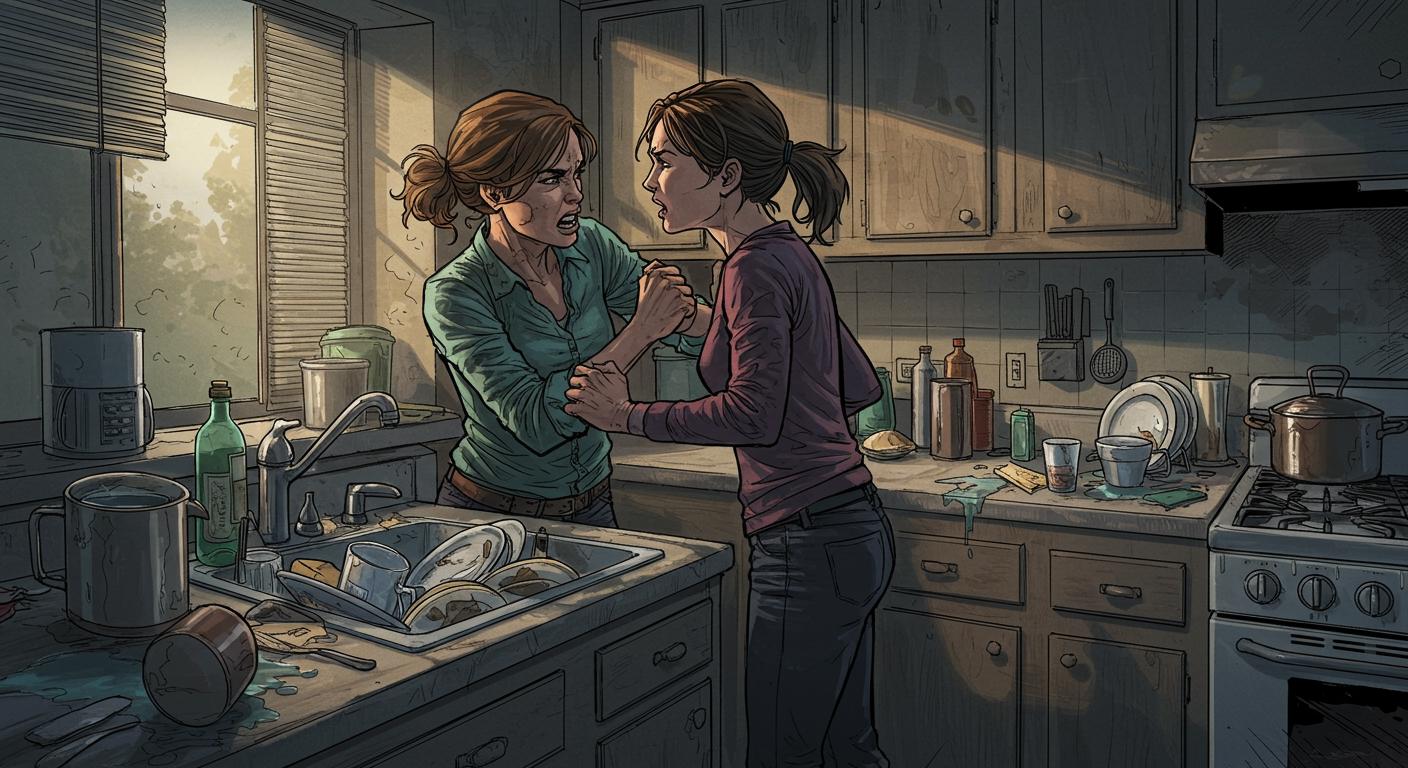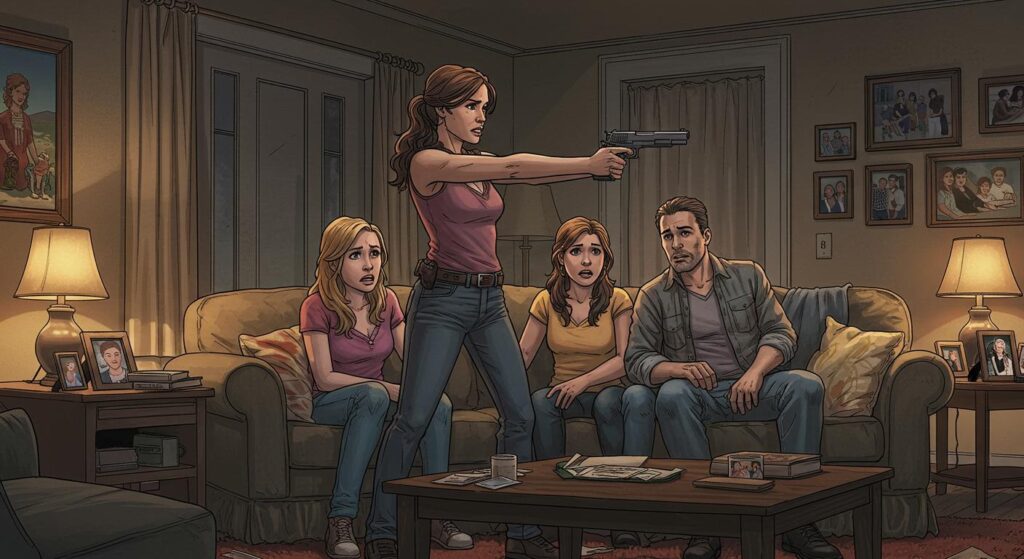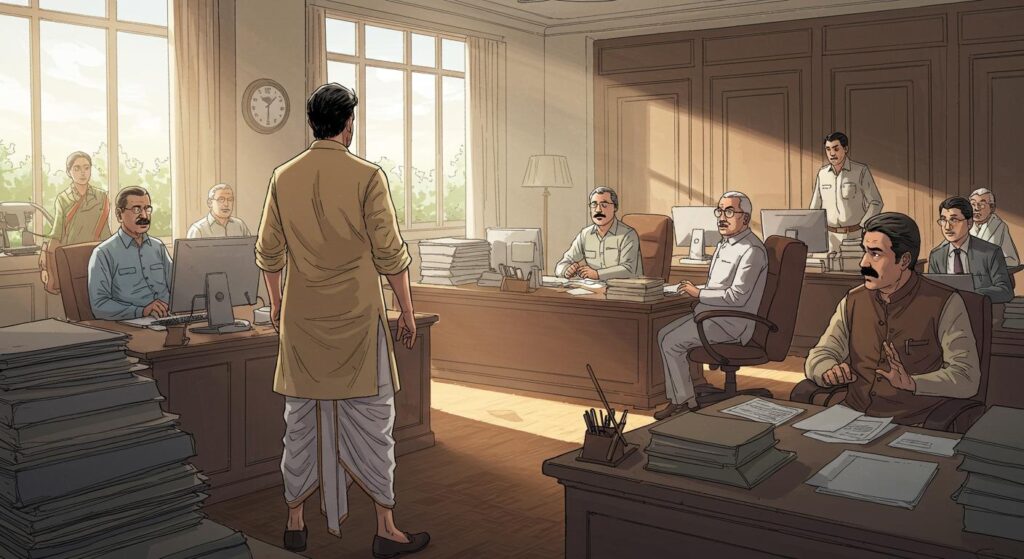If there’s one cosmic constant—aside from the inevitable demise of socks in the laundry—it’s that sharing a kitchen inevitably breeds conflict. But even by the robust standards of the so-called “chore wars,” Provo’s latest headline manages to stand out, blending the everyday mundane with a decidedly unmundane aftertaste.
According to a detailed report from KSLTV, a Provo woman, Scarleth Lissette Vega Guiracocha, has been arrested following what police allege was a literal knock-down, drag-out argument over unwashed plates. This, dear reader, is domestic life as high drama—minus the laugh track and canned applause.
When Plates Pile Up… and So Does Tension
The incident began, as KSLTV lays out by citing police affidavits, with the kind of timeworn scene most roommates know all too well: dirty dishes languishing unwashed, no doubt silently multiplying in the sink. A dispute erupted over the plates not being washed—a scene familiar in dormitories and shared rentals the world over. The disagreement, as described in police statements referenced by KSLTV, escalated beyond the kitchen when Guiracocha allegedly trailed her roommate into her bedroom, pushing through a closed door to continue the argument. Despite being told to leave, she reportedly remained in the room.
What happened next veered sharply away from everyday annoyance; as outlined in the KSLTV report drawing from the official affidavit, Guiracocha is accused of shoving her roommate to the ground and grabbing her by the hair and neck. The victim recounted to police that she struggled to breathe for several seconds during the altercation and had to forcefully remove Guiracocha’s hand to be able to breathe again. The outlet also notes that Guiracocha then attempted to kick her roommate, though the alleged victim was able to defend herself. During the investigation, officers observed physical injuries consistent with the victim’s version of events, a detail previously mentioned by KSLTV.
The consequences of this confrontation go well beyond a typical roommate squabble. According to police accounts referenced in the outlet, Guiracocha was arrested on charges of aggravated assault and aggravated burglary—charges that mark the escalation from petty conflict to serious legal consequences.
Dirty Dishes: The Universal Flashpoint?
It’s hard not to marvel at the strange power household chores hold over interpersonal relations. Most chore-related tiffs end with passive-aggressive notes taped to the refrigerator or, at worst, a frosty silence. So what is it about unwashed plates that can, on rare occasions, send tempers boiling over? Does the sight of a crusted fork symbolize disrespect, neglect, or the crumbling foundation of household harmony?
As noted earlier in the KSLTV report, the victim’s detailed account and visible injuries suggest this was more than a mere verbal sparring match. While such clashes are rare, they reveal how the little things—plate by plate—can tip coexistence into conflict. One imagines that most roommate disputes could be resolved with a new chore chart or mediating text thread, and yet, as this case shows, sometimes the line between “tidy up, please” and “call the police” is unexpectedly thin.
A Chore Chart, or a Tale of 21st Century Tensions?
So, are we just witnessing a modern morality tale for communal living, or is there something more? Increased housing density, reduced privacy, and high stress can make small annoyances loom large. Perhaps the Provo incident simply magnifies the tensions simmering beneath the surface in countless shared apartments and homes.
It’s not just about the dishes. It’s about respect, boundaries, and the subtle contracts we all sign—sometimes unspoken, sometimes written in dry-erase marker above the kitchen trash can. When those break down, the consequences, as this peculiar Provo episode suggests, can far surpass the scale of the original grievance.
Maybe this is one for the annals of unlikely household history, or maybe it’s a useful if slightly unsettling reminder: rinse your cup, say your piece, and remember, sometimes the safest place to retreat really is behind a closed (and, ideally, locked) door.







